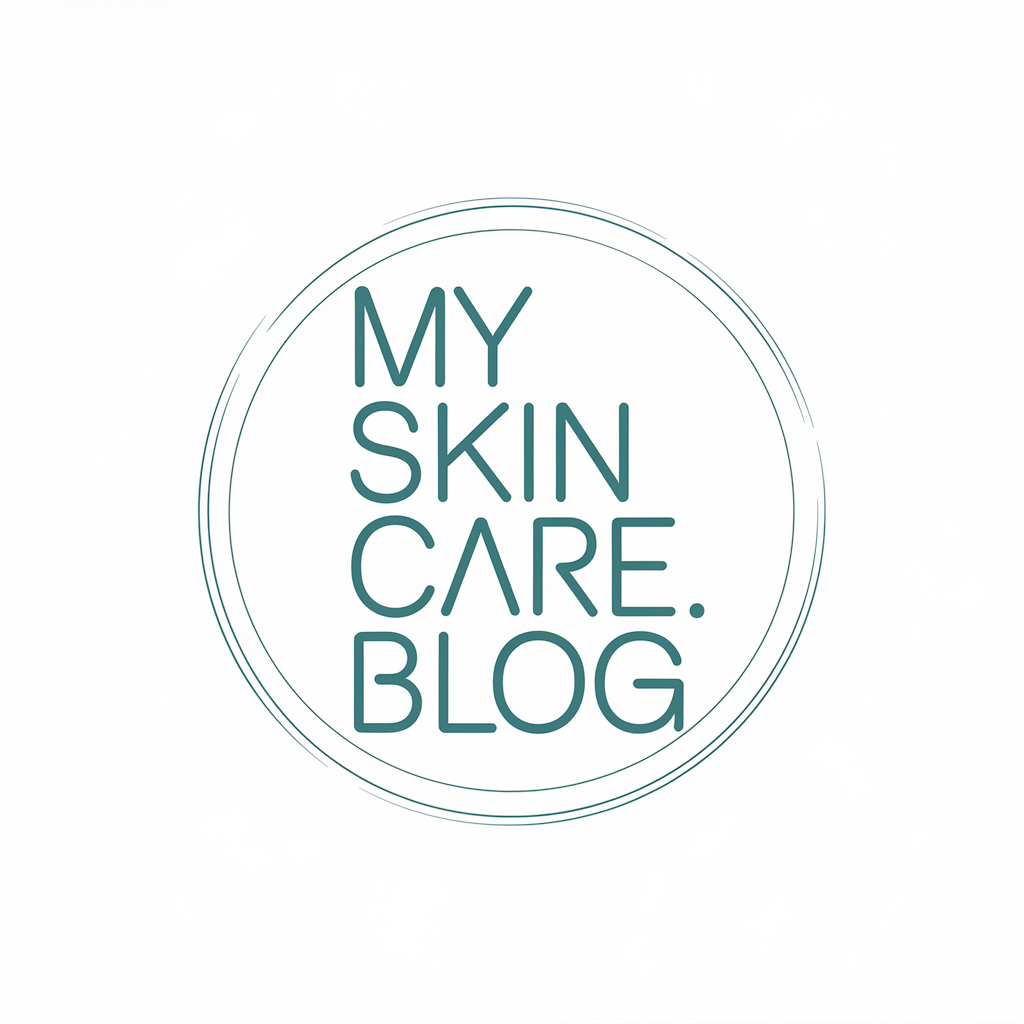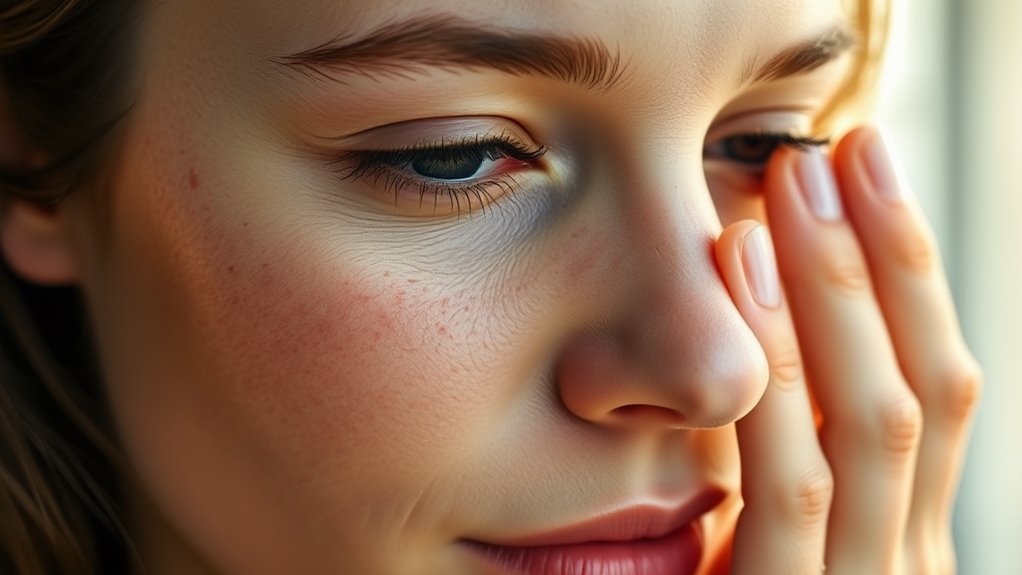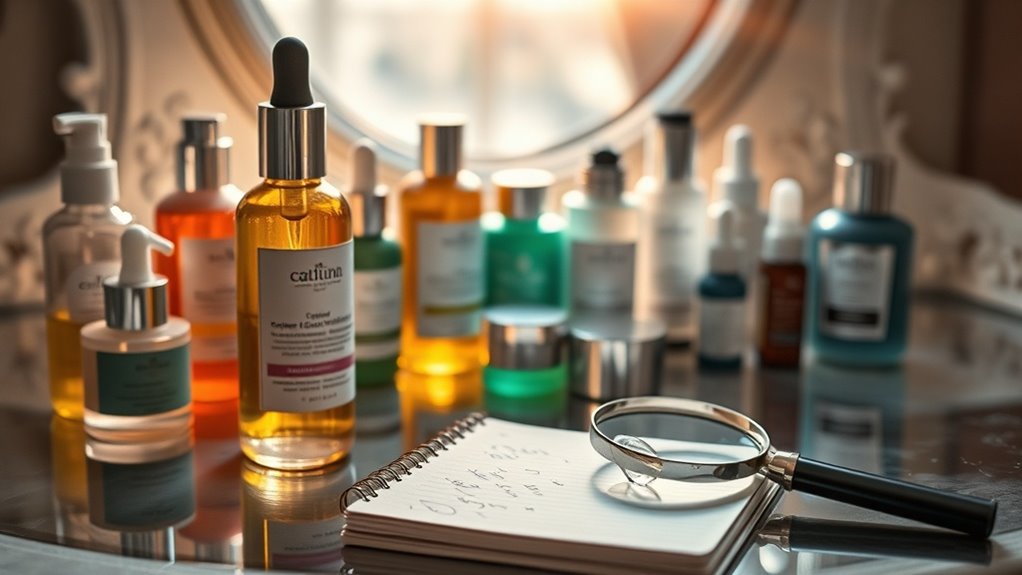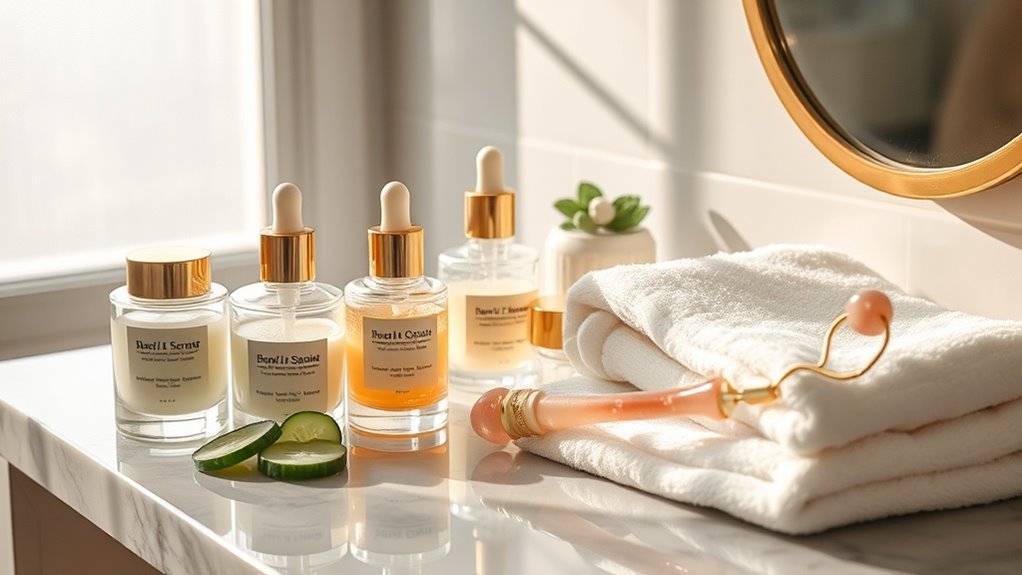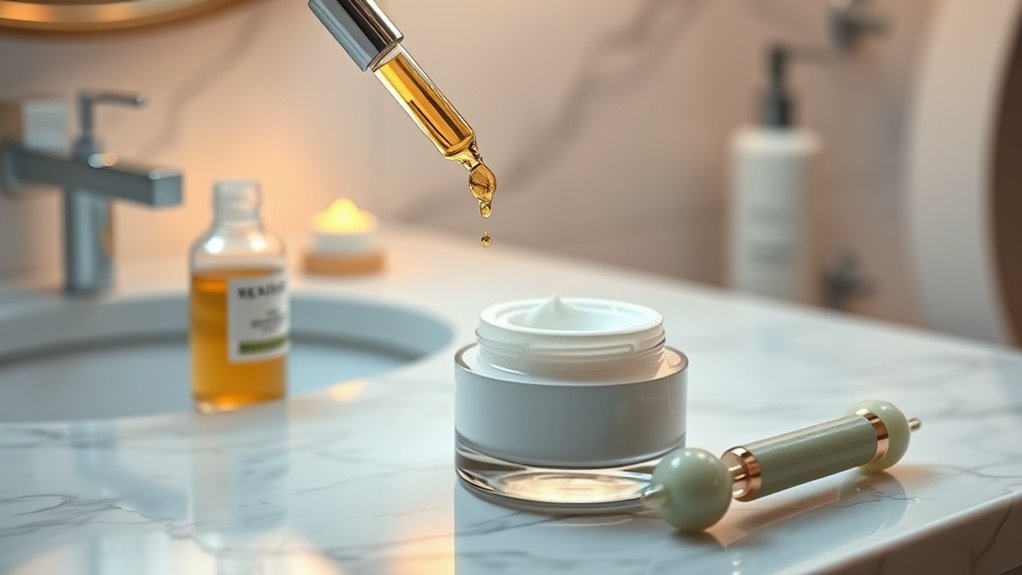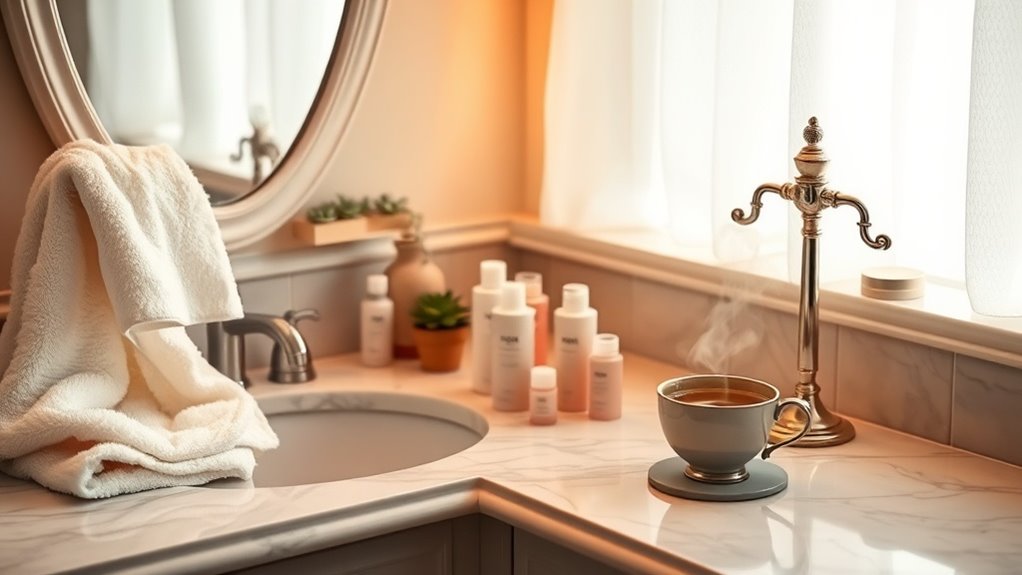Are You Damaging Your Skin Without Knowing It. Fix These Habits
You’re unknowingly damaging your skin by overwashing, which strips natural oils, or skipping sunscreen, causing UV harm. Using harsh products leads to irritation, while sleeping in makeup clogs pores and invites breakouts. Touch your face less, avoid over-exfoliating, ditch poor diets, and manage stress for better results. Make these changes now, and you’ll uncover even more ways to restore your skin’s natural glow.
Key Takeaways
- Wash your face only once or twice daily with a gentle cleanser to avoid stripping natural oils and causing irritation.
- Apply sunscreen with at least SPF 30 every day to prevent UV damage, premature aging, and skin cancer.
- Remove makeup every night to prevent clogged pores, breakouts, and bacterial buildup.
- Avoid touching your face frequently to reduce bacteria transfer and minimize irritation or breakouts.
- Limit exfoliation to 1-2 times weekly with gentle products to protect your skin’s barrier from irritation and sensitivity.
Overwashing Your Face
If you’re overwashing your face, you’re stripping away its natural oils, which can leave your skin dry, irritated, and more prone to breakouts.
This common skincare error disrupts your skin’s barrier, making it vulnerable to environmental damage and inflammation. Additionally, using the right water temperature during cleansing can help prevent further irritation and maintain your skin’s natural balance.
To fix it, wash only once or twice daily with a gentle cleanser, and pat dry instead of rubbing. You’ll maintain balance, reduce redness, and promote healthier skin.
Remember, moderation prevents these avoidable skincare errors, so listen to your skin’s needs for long-term glow and resilience.
Stay consistent for best results.
By focusing on gentle skincare routines, you can avoid the pitfalls of harsh treatments and foster true skin healing.
Using Harsh Skincare Products
Using harsh skincare products disrupts your skin’s protective barrier, causing irritation, dryness, and increased sensitivity that can worsen over time. Moreover, over-exfoliation often compounds these problems by stripping away the skin’s natural protective layer.
These items often include alcohol, sulfates, or fragrances that disrupt your skin’s pH balance and natural flora. You may notice increased redness or flakiness, which are red flags.
To fix this, switch to gentle, dermatologist-recommended products that are free from harsh additives. Look for labels indicating “for sensitive skin” and incorporate a simple routine: cleanse with a mild soap, moisturize daily, and use products with natural ingredients like aloe vera or chamomile.
For deeper insight, always check product labels for toxic ingredients to make safer choices in your skincare routine.
Neglecting Sunscreen Application
You often skip sunscreen, putting your skin at risk for UV damage effects that harm its health.
This habit accelerates skin aging, causing premature wrinkles and loss of elasticity.
Worse, it raises your cancer risk, so make applying sunscreen a non-negotiable part of your routine.
For instance, choosing between SPF 50 and SPF 30 can significantly impact the level of UV protection you receive.
In fact, daily sunscreen application is the most essential and cost-effective anti-aging product for preventing premature aging and skin damage.
UV Damage Effects
Without the barrier of sunscreen, UV rays penetrate your skin, accelerating damage that manifests as premature aging, painful sunburns, and a heightened risk of skin cancer.
This exposure isn’t just a summer issue—it’s a daily threat that you can mitigate with smart habits.
Here’s how UV damage affects you:
-
Triggers immediate inflammation: UV rays cause painful sunburns, making your skin red, swollen, and sensitive within hours.
-
Weakens your skin’s defense: It breaks down collagen and DNA, leaving you vulnerable to long-term harm.
-
Increases cancer risk: You’re up to 20 times more likely to develop melanoma without protection.
-
Promotes hyperpigmentation: Uneven spots and freckles appear as your skin reacts defensively.
Skin Aging Acceleration
Neglecting sunscreen application amplifies UV damage by breaking down collagen and elastin fibers in your skin, leading to premature wrinkles, fine lines, and sagging.
You’re accelerating the aging process without realizing it, as UV rays penetrate deeply, depleting your skin’s natural defenses and reducing firmness.
To fix this, apply a broad-spectrum SPF 30+ every morning, even indoors, and reapply every two hours outdoors.
Make it a habit—choose water-resistant formulas for activities.
Protect your skin daily; you’ll maintain a youthful glow and prevent long-term damage effortlessly.
Don’t wait; start today.
Cancer Risk Increase
Beyond its role in accelerating aging, consistently skipping sunscreen exposes your skin to excessive UV radiation, which directly damages DNA and heightens your risk of skin cancers like melanoma.
This can result in life-threatening conditions, but you’re not helpless—simple changes make a big difference.
-
Apply broad-spectrum SPF 30+ daily: Slather it on all exposed areas before going out to block harmful rays effectively.
-
Reapply every two hours: Do this especially if you’re sweating or swimming to maintain protection and reduce exposure.
-
Seek shade and cover up: Wear hats, sunglasses, and long sleeves during peak sun hours to minimize UV damage.
-
Get regular skin checks: Schedule annual dermatologist visits to spot early signs and catch cancer before it progresses.
Sleeping With Makeup on
You risk clogging your pores when you sleep with makeup on, as it traps dirt and oil against your skin overnight.
This buildup creates an ideal environment for bacteria, increasing your breakout risk significantly. Additionally, experts suggest using overnight acne treatments to help reduce inflammation and prevent breakouts from worsening.
Start breaking this habit by always removing your makeup before bed to keep your skin clear and healthy.
Embracing this change is crucial for achieving glowing skin, as it supports essential lifestyle adjustments for healthier skin.
Pore Clogging Effects
While sleeping with makeup on might seem like a minor oversight, it actively clogs your pores by trapping dirt, oil, and dead skin cells. This buildup disrupts your skin’s natural renewal process, leaving it congested and less vibrant.
To understand the pore-clogging effects, consider these key impacts:
-
Impairs natural exfoliation: Your skin can’t shed dead cells effectively, causing buildup that blocks pores immediately.
-
Traps environmental pollutants: Makeup holds onto daily grime, intensifying pore obstruction and reducing oxygen flow.
-
Alters oil balance: It mixes with your skin’s oils, creating a thick residue that enlarges and clogs pores further.
-
Diminishes skin barrier function: Clogged pores weaken your skin’s defense, making it more susceptible to irritation from trapped substances.
Breakout Risk Increase
Sleeping with makeup on doesn’t just clog your pores—it heightens your breakout risk by fostering an ideal environment for bacteria and inflammation.
You’re essentially trapping dirt, oil, and pollutants against your skin overnight, which triggers acne and irritation. This habit disrupts your skin’s natural barrier, leading to redness, swelling, and potential infections.
To fix it, always remove makeup with a gentle cleanser before bed; it’ll reduce inflammation and promote healing. Make this a nightly routine—your skin will thank you with a clearer, healthier glow.
Don’t underestimate the power of clean sleep for breakout prevention.
Touching Your Face Frequently
Frequent face touching transfers bacteria, oils, and dirt from your hands to your skin, often leading to breakouts, irritation, and infections.
You’re compromising your skin’s barrier and inviting unnecessary problems that could worsen over time. For quick recovery from such stress-related effects, consider overnight treatments to help soothe and repair your skin overnight.
To break this habit effectively:
-
Track your triggers: Notice when you touch your face most, like during stress, and address the root cause.
-
Keep hands occupied: Use a stress ball or phone to redirect the impulse and reduce contact.
-
Maintain hand hygiene: Wash hands frequently with soap to limit germ transfer before it reaches your skin.
-
Set boundaries: Place sticky notes as reminders in your workspace to consciously avoid touching.
Additionally, recognizing acne breakouts as a common result of such habits can motivate you to adopt more mindful behaviors for clearer skin.
Ignoring Hydration Needs
Ignoring your skin’s hydration needs robs it of vital moisture, leading to dryness, premature aging, and increased vulnerability to irritants.
You’re likely overlooking simple daily habits that keep your skin balanced. Start by drinking at least eight glasses of water daily to support internal hydration and flush out toxins.
Choose a moisturizer with hyaluronic acid or glycerin, applying it twice daily after cleansing to create a protective barrier. For enhanced results, consider using products containing hyaluronic acid, which can hold up to 1000 times its weight in water for superior hydration.
Monitor for dryness or tightness, and incorporate hydrating serums if needed.
These practical steps will restore your skin’s natural barrier, promoting a healthier, more radiant complexion.
Additionally, adopting lifestyle changes like a nutrient-rich diet can further enhance your skin’s resilience against dryness.
Over-Exfoliating Your Skin
Over-exfoliating your skin disrupts its natural barrier, causing irritation, redness, and increased sensitivity that undermine your efforts to stay hydrated.
You’re stripping away essential oils and cells faster than they regenerate, leaving your skin vulnerable to damage.
To fix this, follow these steps:
-
Assess your routine: Track how often you’re exfoliating and reduce it to 1-2 times weekly.
-
Select gentle products****: Choose enzyme-based exfoliators over harsh physical scrubs to minimize trauma.
-
Monitor your skin’s response: Watch for signs like flaking or burning, and pause if needed.
-
Prioritize recovery: Give your skin a break with soothing, barrier-repairing creams to restore balance.
Consuming a Poor Diet
When you consume a poor diet, you’re depriving your skin of vital nutrients that keep it vibrant and resilient. This lack of essential vitamins and minerals, such as vitamin A for cell production and vitamin E for protection against damage, can lead to dryness, wrinkles, and a dull complexion.
Additionally, diets high in sugar and unhealthy fats promote inflammation, exacerbating issues like acne and uneven texture. To fix this, prioritize whole foods: load up on leafy greens, berries, nuts, and fatty fish for antioxidants and omega-3s.
Stay hydrated, cut processed foods, and aim for balanced meals to restore your skin’s natural glow and health.
Stressing Out Without Management
Stress takes a toll on your skin when you leave it unmanaged, triggering hormones like cortisol that break down collagen and amplify issues such as acne, redness, and premature aging.
You can protect your skin by adopting simple stress-management strategies that promote overall health.
-
Practice deep breathing exercises* daily to quickly lower *cortisol levels and calm your mind.
-
Engage in regular physical activity****, like walking or yoga, to release endorphins and reduce tension.
-
Prioritize quality sleep****—aim for 7-9 hours nightly—to allow your skin to repair and regenerate.
-
Incorporate mindfulness techniques, such as journaling, to process emotions and prevent stress buildup.
Skipping Regular Cleansing Routines
Skipping regular cleansing routines lets dirt, oil, and impurities build up on your skin, leading to clogged pores, breakouts, and a dull complexion.
You disrupt your skin’s natural balance, inviting bacteria and inflammation that accelerate aging and uneven tone.
Don’t underestimate this habit—make cleansing twice daily with a gentle, pH-balanced cleanser non-negotiable.
Choose products suited to your skin type to remove makeup, sweat, and pollutants effectively.
By committing to this simple step, you’ll maintain a clear, radiant glow and prevent long-term damage.
Track your routine to build consistency and see results quickly.
